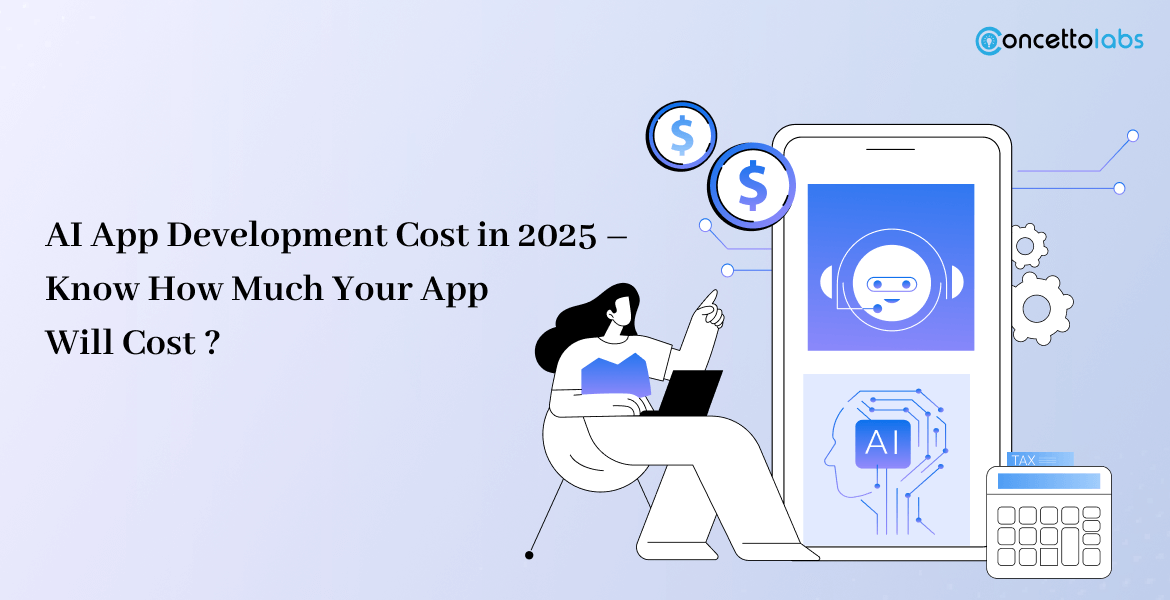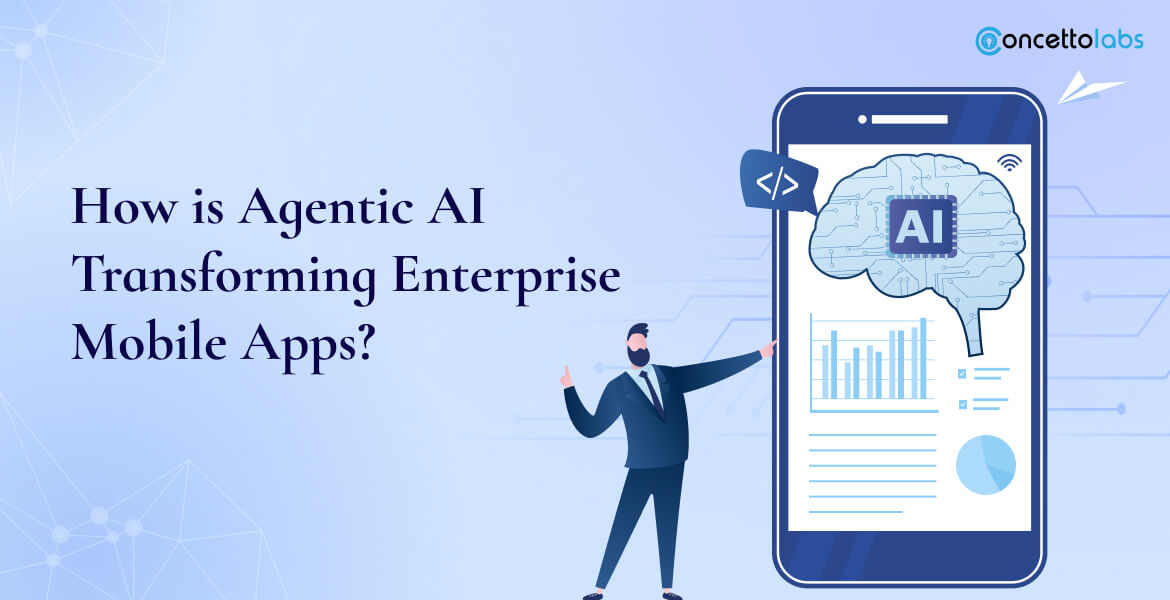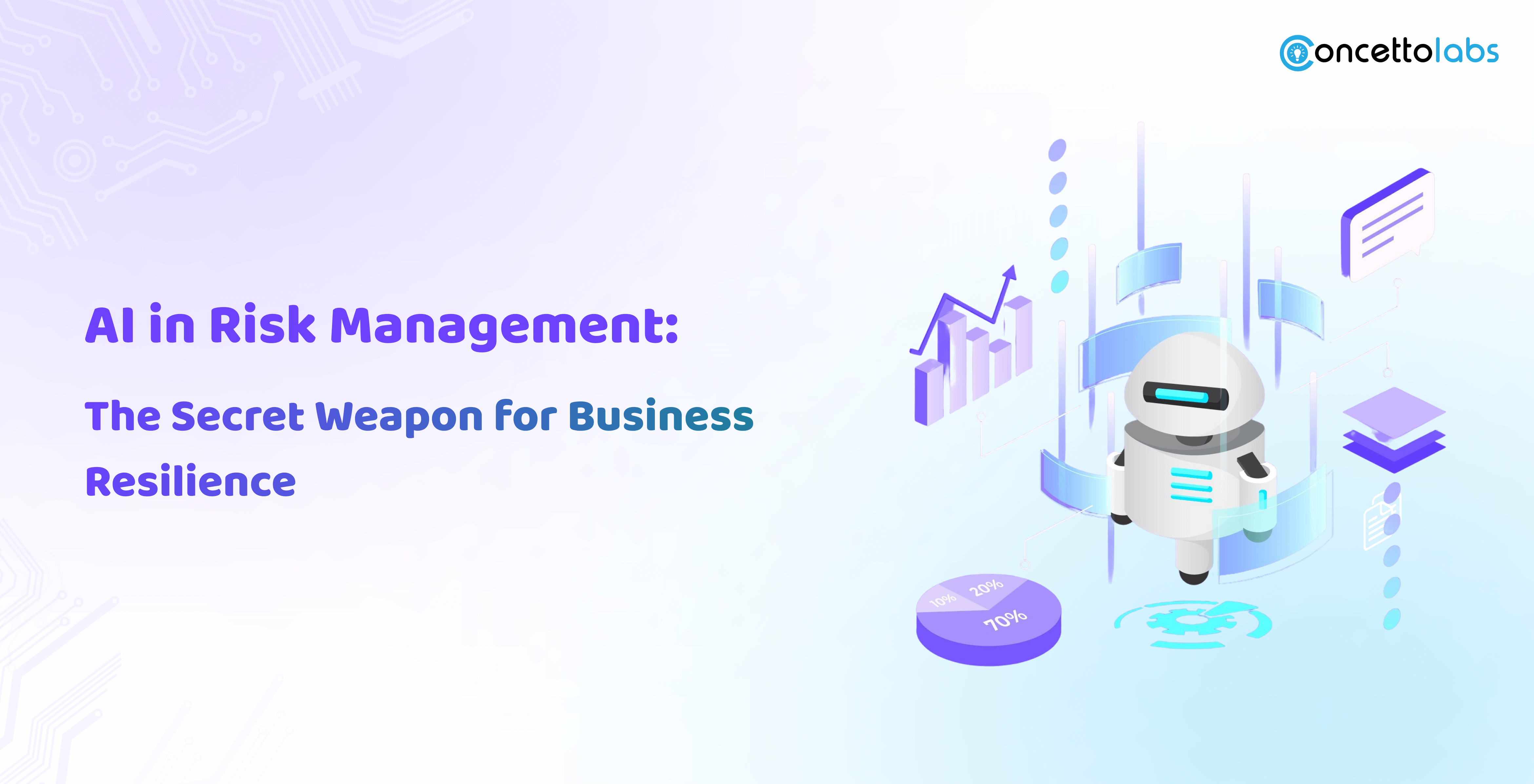
Summary: Artificial Intelligence in education is transforming the education system by enhancing learning experiences, personalizing curriculums, and automating administrative tasks. From AI-driven intelligent tools to predictive analytics, discover how AI empowers educators and students alike. Check below in the blog to explore the latest advancements, use cases, future-trends, and real-world applications of AI in reshaping the future of education.
The education sector is enhancing AI’s potential to build smarter classrooms that improve both students’ and teachers’ learning experiences as technology develops. AI in education is changing the way we think about studies, from adaptive tests to personalized learning. It can optimize educational systems, improve instructional methods, and raise student learning outcomes.
As per Statista, Revenue in the Online Education market is projected to reach US$185.20bn in 2024.
Artificial Intelligence (AI) is a fast-moving technology that includes building smart computers that are capable of learning, solving problems, and making decisions—tasks that normally require human intelligence. By using chatbots and virtual instructors to offer prompt support and encourage self-directed learning, conversational AI has found a useful position in education.
By utilizing natural language processing (NLP) and machine learning techniques, these Artificial Intelligence chatbots are revolutionizing the educational experience for students by providing prompt, personalized assistance. AI solutions improve student information retention and enable a deeper comprehension of subjects by developing dynamic and captivating learning environments.
The global market for AI in education was estimated by Grand View Research to be worth USD 1.82 billion in 2021 and is expected to expand at a compound annual growth rate (CAGR) of 36.0% between 2022 and 2030.
This blog will examine the advantages and practical applications of artificial intelligence (AI) in education, emphasizing how it can help teachers meet the individual needs of each student and promote deeper comprehension and increased engagement.
What is the Importance of AI In Education?

The growth of Artificial Intelligence in the education sector is extensive and wide-ranging. AI-powered technology has the ability to transform conventional educational methods and give students access to more individualized, inclusive, and flexible learning opportunities. AI’s capacity to offer customized learning paths to students according to their particular needs, learning preferences, and skill levels is among its most important educational effects. Whatever their background or ability level, this helps guarantee that students get the appropriate guidance and tools they require to succeed.
To enhance learning outcomes, AI in education assists teachers in identifying knowledge gaps in their students and in giving them focused feedback. AI-powered chatbots and virtual assistants enable teachers to give students prompt support and guidance outside of the classroom, keeping them motivated and involved. Teachers can use AI to spot troubled pupils early on and provide them with the help they need to succeed.
The potential for AI to transform education by shifting away from conventional educational models and toward innovative and collaborative methods is among its most exciting effects. For instance, students can now investigate difficult ideas in novel and immersive ways with the use of AI-powered virtual and augmented reality tools, which make learning more dynamic and fascinating.
Use Cases of AI-Powered Tools

AI has many applications in education, including variations in teaching methods by teachers, how students learn, and how educational institutions function. Among the well-known uses of AI in education are:
1. Intelligent Education Systems
AI-powered educational apps use sophisticated algorithms to provide pupils with immediate, individualized feedback. The AI examines student answers as they interact with learning materials, pinpoints problem areas, and adjusts explanations to improve understanding. This customized method helps close knowledge gaps by modifying the learning tempo appropriately. By offering prompt support and accommodating a range of learning preferences, these technologies enable students to better understand difficult ideas. Constant engagement with AI creates a dynamic learning environment that improves students’ self-esteem and general academic achievement.
2. Automated Grading and Assessment
AI provides quick and reliable evaluations of student work, streamlining the grading process. It eases the workload for teachers, freeing them up to focus on individualized instruction. Student performance patterns can highlight issues with students and provide required support. AI’s effectiveness, meanwhile, guarantees timely feedback, improving the learning cycle. The computerized systems for assessment and grading enhance the quality of instruction, encourage fair evaluation, and foster productive student-teacher cooperation.
3. Virtual Assistants and Chatbots
AI-based Chatbots and virtual assistants are essential for improving students’ educational experiences. These sophisticated devices provide timely assistance by answering questions, helping students with their schoolwork, and providing insightful comments. Due to their 24/7 accessibility, these resources provide assistance outside of scheduled class times, meeting students’ needs whenever they arise. The individualized support encourages self-directed learning and gives students the confidence to actively interact with course material, which eventually helps them succeed academically.
4. Curriculum Planning
By examining educational data to find patterns and gaps in learning results, artificial intelligence (AI) supports curriculum planning. Based on current knowledge and changing educational standards, it might recommend curriculum changes and modifications. AI can also automate the process of matching curricula to particular learning goals, guaranteeing that instructional materials are current and relevant. By simplifying curriculum preparation, teachers are better equipped to manage resources and make data-driven decisions, which raises the standard and applicability of instruction.
5. Interactive and Learning Games
Artificial Intelligence has the potential to create captivating learning experiences in interactive and instructional games. It can create captivating storylines, modify narratives in response to user interactions, and provide customized insights by utilizing AI algorithms, natural language processing, and machine learning. This method pushes pupils to learn more actively, creatively, and critically. Generative AI-powered learning platforms for games include challenges, simulations, and virtual environments to encourage problem-solving, active learning, and teamwork.
6. Personalized Learning
Students in a traditional school setting have a range of skills and learning styles. To better accommodate these variations, the traditional method is frequently required. This is the point at which using AI into online learning becomes beneficial. Educational platforms can use AI to give each student a customized learning experience. Additionally, by using technologies like machine learning, the system can adjust to the different ways that each student learns, which lessens the cognitive load on them. By providing AI-enhanced learning activities, personalized educational programs, and other features, AI in education seeks to meet each student’s unique needs. By guaranteeing that students receive materials and content that suit their learning preferences, this strategy encourages participation and produces better learning results.
7. Task Automation
AI makes it easier to automate tasks in education and enhances virtual classrooms. AI manages useful tasks including homework evaluation, exam grading, academic paper organization, reporting management, and even creating presentations and notes in addition to individualized instruction. Edtech businesses can improve everyday productivity by streamlining operations due to task integration. AI creates an environment that promotes knowledge acquisition and learning efficiency by automating repetitive operations.
8. Smart Content Creation
AI and ML play a key role in education by helping researchers and teachers create creative content that facilitates teaching and learning. Examples of AI-powered intelligent content creation include the following:
- Visualization of information: Beyond practical laboratories, traditional instruction requires visual components. AI-powered content production creates realistic, immersive study environments on the web. Immersion 2D–3D representations made possible by this technology give pupils a variety of viewpoints for improved understanding.
- Creation of Digital Lessons: AI in education makes it easier to create digital classes and study materials that are small and easy to save. This guarantees thorough curriculum access without consuming too much system storage. Additionally, these tools work with any device, making remote learning smooth.
- Regular Updates to the Content: AI gives users the ability to maintain and update instructional content on a regular basis, guaranteeing its continued relevance. When new information is added, users are also promptly notified, which helps them get ready for the duties that lie ahead.
9. Proctoring
AI is essential for managing online tests, successfully preventing cheating, and advancing equity. It reduces the workload for teachers by using sophisticated monitoring and authentication methods, allowing them to concentrate on the caliber of assessments. It maintains the honesty of the evaluation process by providing students with a safe and fair testing environment. By promoting an atmosphere of trust and academic honesty, this not only protects the validity of tests but also improves overall educational results.
10. Language Learning
AI improves language acquisition by providing immediate, real-time feedback on vocabulary, grammar, and pronunciation. As they get prompt direction and corrections, this interactive exercise helps students improve their language proficiency and promotes a more efficient learning environment. AI-powered tools make learning a language interesting and useful by mimicking real-world conversational situations. It provides individualized help for every learner by adjusting to their unique learning preferences. All things considered, AI transforms language instruction by making it more exciting and approachable for students of all skill levels.
11. Bridges the Skill Gap
One of the most important ways to close the technology gap that businesses confront is to upskill students. Applications driven by AI and learning and ML give students affordable and easy ways to learn new skills, which benefits both people and businesses. This strategy isn’t just for students; it also includes upskilling current staff members, increasing motivation, and encouraging an innovative and improvement-oriented culture in businesses. Additionally, the use of AI in education affects Learning and Development (L&D) by examining human learning styles, modifying the learning process to suit individual preferences, and automating the process to improve skill acquisition.
12. Edutainment and Gamification
A dynamic approach to education, edutainment and gamification uses artificial intelligence (AI) to create interactive educational video games and simulations that make traditional learning fun and interesting. By incorporating gamification components, such as competition and awards, into instructional materials, AI creates an atmosphere that encourages students to actively engage in their educational process. In addition to holding students’ interest, these gamified teaching resources improve their memory and comprehension of difficult ideas. In line with current educational trends that emphasize the value of making learning both interesting and educational, AI-driven edutainment and gamification enhance the learning environment through fully immersive games and interactive challenges.
Real-World Applications of AI in Education

AI-powered translation technologies remove language obstacles. Some apps utilize Artificial Intelligence algorithms to tailor language learning for their users by gathering information about their abilities, weaknesses, and learning patterns, allowing the AI system to alter lessons and exercises accordingly. For example, if a user has difficulty conjugating words into the correct tense, AI can generate additional practice tasks and offer tailored feedback and suggestions. With many courses now accessible for free online, students can utilize AI to translate information into their favorite language.
1. Writing and AI
AI in academics can provide writers with grammar and style tips to help them enhance their writing abilities. If you’ve ever used Grammarly, you’ve tapped into an AI technology designed to help you write better material in less time.
Artificial Intelligence applications in education can also detect plagiarism in essays, grade written tasks objectively using rubrics and increase student vocabulary.
2. AI and Early Child Education
AI-powered toys and applications help younger students improve their physical and mental abilities by encouraging certain actions or tasks through tactile, visual, or audio cues. Artificial intelligence can assist children in comprehending ideas like relational reasoning, sequences, and patterns through interactive games and activities.
3. AI and Teaching
AI technology in education can generate lesson plans, assignments, and assessment materials and assist teachers in communicating with parents through regular performance reports. It can also help teachers collect data in order to comprehend what their pupils are interested in, thus making it easier to develop interesting classes. Some powered by artificial intelligence platforms can generate interactive slide presentations for teachers that include polls, questions with no answers, as well as a drawing tool. This saves teachers crucial lesson preparation time.
How Much Does it Cost to Develop an AI Education App?
The average cost of developing an AI education app will be approximately $50,000 to $500,000 or more, depending on your unique requirements. However, this is just an estimate, the actual cost will vary depending on several factors including the project’s complexity, features to be included, UI/UX designs, tech-stack and so on.
Check out the table showing the cost and the timeline of AI education app:
| App Complexity | App Development Time | Average Cost |
| Simple App with Basic Features | 4-6 months | $50,000-$70,000 |
| Medium complex app with Moderate Features | 4-10 months | $70,000-$1,30,000 |
| Highly complex apps with advanced features | 9 months to 1 year or maybe more | $1,30,000 – $3,00,000 or more |
Future Trends of AI in Education
The future of artificial intelligence in education is revolutionary. Technology has the potential to transform the education industry, rethinking old teaching methods and paving the path for a tech-driven future. As society becomes more technologically advanced, AI solutions for education analyze massive data sets using sophisticated algorithms, resulting in tailored and adaptable learning experiences. Students benefit from personalized learning, instant feedback, and access to immersive technology such as augmented and virtual reality in education.
1. Performance Personalization
With the advancement of AI technology in education and computer capacity, it will be possible to design individualized curriculum by gathering and generalizing data. Various innovative AI solutions, such as “Brightspace insights,” assist instructors in tracking, measuring, and monitoring learners’ progress while also assisting them on their learning path. It provides a comprehensive picture of a learner’s progress across the platform.
2. Violation Bias
Human bias remains a barrier in the educational system and an issue with AI systems. In the future, AI in education will develop new ways of evaluating work and testing exams based on specified criteria to avoid prejudice.
3. Combined Assistance
College professors/teachers typically hold a master’s degree in their profession as well as a degree in specialized areas of development. However, an administrative job is sometimes a frustrating attempt to reconcile with pupils. AI in education has the potential to alleviate this problem in the future by providing smart classrooms with AI support, allowing instructors to give their all.
Revolutionize Education System with AI-Powered Tools and Technologies
Leverage the Benefits of AI in Education with Concetto Labs
Artificial Intelligence in education is vast and undeniable. Many organizations are increasingly harnessing the benefits of AI in education to enhance students’ learning experiences. Some companies utilize AI chatbots in education to give students 24-hour support, while others use AI algorithms to identify failing pupils and provide focused solutions. The options are limitless. So, to boost your education business, consider incorporating our generative AI services into your teaching approach. It is a wise investment that will yield a high ROI in the long run.
Concetto Labs, a prominent provider of education app development services, has extensive knowledge of the education sector. With a proven track record of completing over 1000+ successful projects, our experience enables us to create meaningful applications and AI-driven learning platforms. These innovative solutions tailor learning experiences, provide intelligent insights, and improve communication between teachers and students.







 Indonesia
Indonesia
 Botswana
Botswana
 USA
USA
 Italy
Italy
 Panama
Panama




 USA
USA UK
UK Saudi Arabia
Saudi Arabia Norway
Norway India
India Australia
Australia